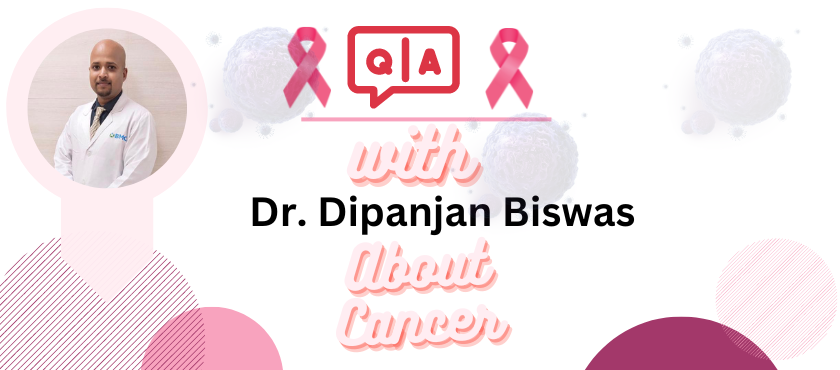Who gets cancer?
Dr. Dipanjan Biswas said that Cancer can affect people of all ages, races, and backgrounds. It is a complex disease that can develop in any tissue or organ of the body. While certain risk factors can increase the likelihood of developing cancer, it is important to note that anyone can be affected by cancer.
How does cancer start?
Dr. Dipanjan Biswas said that Cancer starts when normal, healthy cells undergo genetic changes (mutations) that cause them to grow and divide uncontrollably. Normally, the growth and division of cells are tightly regulated by a complex system of signals and checkpoints within the body. These processes ensure that new cells are produced only when needed and that old or damaged cells are replaced or eliminated appropriately.
What are the symptoms of cancer?
Dr. Dipanjan Biswas explained that the symptoms of cancer can appear in many cases, but not always. Symptoms of cancer generally depend on where the cancer is located and how big it is. Some common symptoms of cancer are as follows:
- Unexplained weight loss
- Fever
- Fatigue
- Pain
- Skin changes
- Changes in urinary habits or bladder function
- Unusual bleeding or discharge
- Lump or bulge in any part of the body
- Indigestion or trouble swallowing
- Recent change in the wart or mole Frequent coughing or hoarseness
Is cancer genetic?
Dr. Dipanjan Biswas , one of the cancer specialist in Raipur, explained that cancer is a genetic disease. This is because cancer is caused by mutations or changes in genes that control the way our cells function, causing them to behave erratically. These mutations can be inherited from ancestors, with a probability of about 5-10 percent of all cancer cases. However, it is more likely that these gene changes are due to factors other than genetics during a person's lifetime. When a person has a family history of hereditary cancer, genetic testing is often recommended.
Is cancer contagious?
No, cancer is not like the flu or a cold. It is not contagious. It does not spread with contact.
Is there a vaccine for cancer?
there are ongoing research efforts and clinical trials exploring different types of cancer vaccines. Some of these vaccines are designed to stimulate the body's immune system to recognize and attack cancer cells specifically. These vaccines can be categorized into different types:
- Preventive Cancer Vaccines:
These are vaccines aimed at preventing certain types of cancer caused by infectious agents. For example, the HPV and hepatitis B vaccines mentioned earlier are preventive vaccines for cancers caused by those specific viruses.
- Therapeutic Cancer Vaccines:
hese vaccines are designed to stimulate the immune system to target existing cancer cells in the body. They aim to help the immune system recognize cancer cells as foreign or abnormal and mount an attack against them.
- Personalized Cancer Vaccines:
Some research focuses on creating personalized cancer vaccines based on a patient's own tumor cells. These vaccines are tailored to the individual's unique cancer antigens, increasing the chances of an effective immune response.



